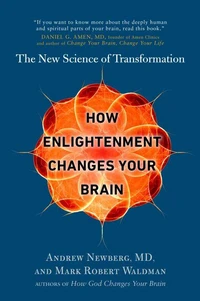Words Can Change Your Brain. 12 Conversation Strategies to Build Trust, Resolve Conflict, and Increase Intimacy
Par : ,Formats :
Disponible dans votre compte client Decitre ou Furet du Nord dès validation de votre commande. Le format ePub protégé est :
- Compatible avec une lecture sur My Vivlio (smartphone, tablette, ordinateur)
- Compatible avec une lecture sur liseuses Vivlio
- Pour les liseuses autres que Vivlio, vous devez utiliser le logiciel Adobe Digital Edition. Non compatible avec la lecture sur les liseuses Kindle, Remarkable et Sony
- Non compatible avec un achat hors France métropolitaine
 , qui est-ce ?
, qui est-ce ?Notre partenaire de plateforme de lecture numérique où vous retrouverez l'ensemble de vos ebooks gratuitement
Pour en savoir plus sur nos ebooks, consultez notre aide en ligne ici
- Nombre de pages272
- FormatePub
- ISBN978-1-101-58570-2
- EAN9781101585702
- Date de parution14/06/2012
- Protection num.Adobe DRM
- Taille1 Mo
- Infos supplémentairesepub
- ÉditeurAvery
Résumé
In our default state, our brains constantly get in the way of effective communication. They are lazy, angry, immature, and distracted. They can make a difficult conversation impossible. But Andrew Newberg, M. D., and Mark Waldman have discovered a powerful strategy called Compassionate Communication that allows two brains to work together as one. Using brainscans as well as data collected from workshops given to MBA students at Loyola Marymount University, and clinical data from both couples in therapy and organizations helping caregivers cope with patient suffering, Newberg and Waldman have seen that Compassionate Communication can reposition a difficult conversation to lead to a satisfying conclusion.
Whether you are negotiating with your boss or your spouse, the brain works the same way and responds to the same cues. The truth, though, is that you don't have to understand how Compassionate Communication works. You just have to do it. Some of the simple and effective takeaways in this book include: . Make sure you are relaxed; yawning several times before (not during) the meeting will do the trick .
Never speak for more than 20-30 seconds at a time. After that they other person's window of attention closes.
Whether you are negotiating with your boss or your spouse, the brain works the same way and responds to the same cues. The truth, though, is that you don't have to understand how Compassionate Communication works. You just have to do it. Some of the simple and effective takeaways in this book include: . Make sure you are relaxed; yawning several times before (not during) the meeting will do the trick .
Never speak for more than 20-30 seconds at a time. After that they other person's window of attention closes.
In our default state, our brains constantly get in the way of effective communication. They are lazy, angry, immature, and distracted. They can make a difficult conversation impossible. But Andrew Newberg, M. D., and Mark Waldman have discovered a powerful strategy called Compassionate Communication that allows two brains to work together as one. Using brainscans as well as data collected from workshops given to MBA students at Loyola Marymount University, and clinical data from both couples in therapy and organizations helping caregivers cope with patient suffering, Newberg and Waldman have seen that Compassionate Communication can reposition a difficult conversation to lead to a satisfying conclusion.
Whether you are negotiating with your boss or your spouse, the brain works the same way and responds to the same cues. The truth, though, is that you don't have to understand how Compassionate Communication works. You just have to do it. Some of the simple and effective takeaways in this book include: . Make sure you are relaxed; yawning several times before (not during) the meeting will do the trick .
Never speak for more than 20-30 seconds at a time. After that they other person's window of attention closes.
Whether you are negotiating with your boss or your spouse, the brain works the same way and responds to the same cues. The truth, though, is that you don't have to understand how Compassionate Communication works. You just have to do it. Some of the simple and effective takeaways in this book include: . Make sure you are relaxed; yawning several times before (not during) the meeting will do the trick .
Never speak for more than 20-30 seconds at a time. After that they other person's window of attention closes.






